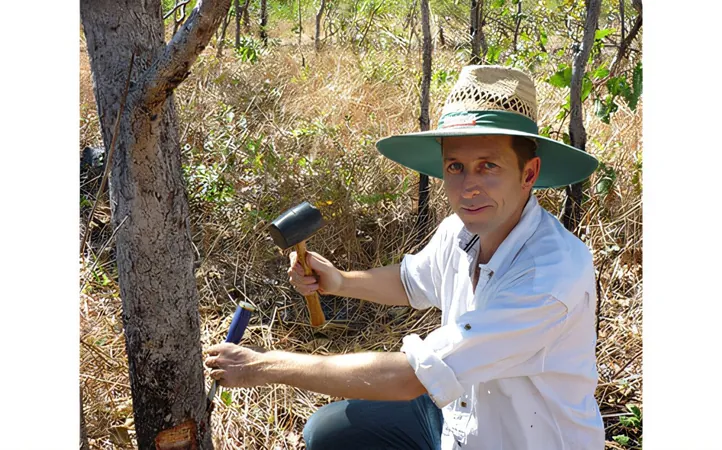
Climate Change May Not Boost Tree CO₂ Emissions as Expected, New Study Uncovers
2025-05-30
Author: Wei Ling
In a groundbreaking study published in *Science*, a prominent international research team reveals that under a warming climate, trees may not release as much carbon dioxide (CO₂) as previously thought. This pivotal research led by Professor Ian Wright from Western Sydney University offers fresh insights into the interactions between climate change and carbon emissions.
Historically, scientists predicted that a warmer climate would trigger a significant rise in CO₂ emissions from tree respiration, exacerbating global warming. However, this new study suggests that the increase may not be as dramatic as once believed.
The research team conducted extensive studies across various tree species globally, measuring CO₂ production from woody stems, a key contributor to the Earth's carbon flux—essentially how CO₂ levels fluctuate in the atmosphere.
While plants naturally respire to generate energy for growth, this process releases CO₂ as a by-product. For years, many models assumed that warmer temperatures would uniformly push plants to ramp up their respiration rates, leading to a vicious cycle of increasing temperatures. Professor Wright clarified, "While plants might release more CO₂ as climate warms, our research indicates that this increase won't be as pronounced as before."
By utilizing a comprehensive global dataset comprising thousands of measurements from diverse climates, the team was able to test their new theory. The impressive dataset included emissions data collected over a decade from Australia’s varied ecosystems, which provided a robust foundation for their conclusions.
The research highlighted a critical distinction between short-term and long-term responses of tree respiration to temperature changes. While immediate temperature spikes can lead to rapid alterations in respiration rates, long-term acclimatization processes take place over months and years, ultimately tempering expected increases in CO₂ emissions.
Dr. Han Wang and lead author Han Zhang from Tsinghua University underscored that until recently, the lack of comprehensive global data limited researchers' ability to accurately assess tree respiration models. Collaborators, including scientists from Imperial College London and UC Berkeley, reinforced the study's global significance.
Professor Sandy Harrison from the University of Reading remarked on the groundbreaking implications of these findings, suggesting that they could reshape how scientists predict carbon fluxes under future climate scenarios and the Earth's capacity to mitigate warming.
As climate predictions indicate more frequent and severe environmental extremes—heat waves, wildfires, droughts—this research emphasizes the importance of understanding trees' responses to temperature changes, offering new hope in the fight against climate change.




 Brasil (PT)
Brasil (PT)
 Canada (EN)
Canada (EN)
 Chile (ES)
Chile (ES)
 Česko (CS)
Česko (CS)
 대한민국 (KO)
대한민국 (KO)
 España (ES)
España (ES)
 France (FR)
France (FR)
 Hong Kong (EN)
Hong Kong (EN)
 Italia (IT)
Italia (IT)
 日本 (JA)
日本 (JA)
 Magyarország (HU)
Magyarország (HU)
 Norge (NO)
Norge (NO)
 Polska (PL)
Polska (PL)
 Schweiz (DE)
Schweiz (DE)
 Singapore (EN)
Singapore (EN)
 Sverige (SV)
Sverige (SV)
 Suomi (FI)
Suomi (FI)
 Türkiye (TR)
Türkiye (TR)
 الإمارات العربية المتحدة (AR)
الإمارات العربية المتحدة (AR)